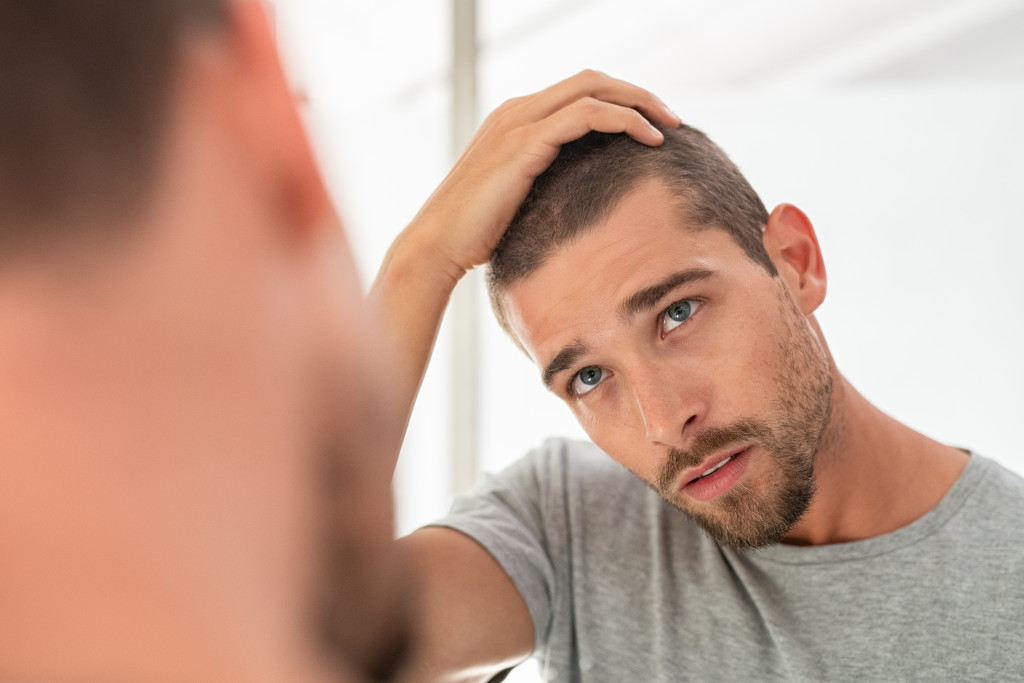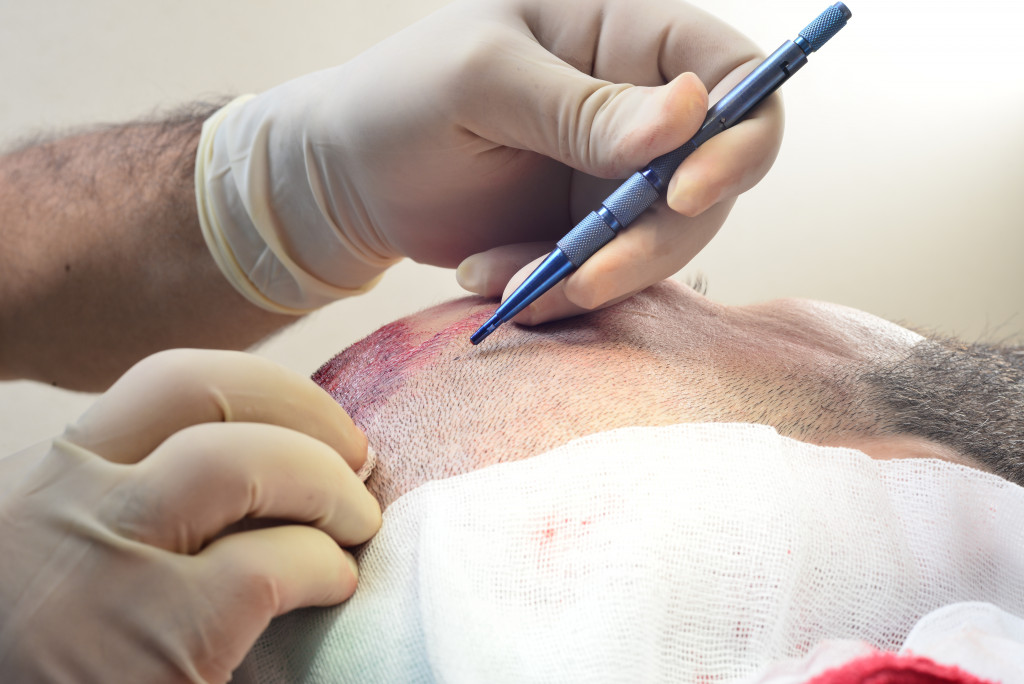- Hair loss could indicate health issues and impact psychological well-being, necessitating lifestyle changes and medical interventions.
- A balanced diet, regular exercise, adequate hydration, and sufficient sleep are crucial for maintaining hair health.
- Medications like Minoxidil, Finasteride, and Spironolactone can slow hair loss and promote new growth.
- Cosmetic treatments, such as scalp micro pigmentation or hair integration, are promising alternatives for cases unresponsive to medication.
Hair loss can significantly impact a person’s psychological well-being. It can lead to decreased self-esteem and increased anxiety about physical appearance, further contributing to social awkwardness or withdrawal. Statistics back up these claims, with the American Hair Loss Association reporting that 2/3 of men notice hair loss by age 35, and women make up nearly 40% of all hair loss sufferers. Hair loss can also indicate underlying health conditions, making it a concern beyond cosmetics.
If you suffer from hair loss, you might have to make changes to ensure your hair remains healthy. Here are a few areas where you should pay particular attention:
Healthy Lifestyle Changes
A diet lacking essential nutrients can adversely impact your hair health, potentially leading to hair loss. As a result, healthy lifestyle changes should be a priority if you’re worried about hair loss. It’s not just about what you eat, though; exercise and getting enough sleep are necessary for having healthy hair. Here are a few examples to consider:
The products we use
Balanced Diet
A balanced diet is pivotal in maintaining overall health, including hair health. Foods rich in vitamins (A, B, C, and E), minerals (iron, zinc, and selenium), and proteins can stimulate hair growth and prevent hair loss. For instance, leafy greens, nuts, seeds, and fish are excellent sources of these nutrients.
Regular Exercise
Regular physical activity improves blood circulation, stimulates hair follicles, promotes growth, and prevents hair loss. Exercise also helps manage stress, a common culprit behind hair loss. Activities can range from strenuous workouts like running or weightlifting to relaxing pursuits such as yoga or meditation.
Adequate Hydration
Staying hydrated is essential to maintain hair health. Water helps nourish the hair from the inside out, resulting in less breakage and hair fall. Aim for 8-10 glasses of water daily to keep hair follicles hydrated and healthy, promoting growth and strength.
Sufficient Sleep
Sleep is the body’s natural way of regenerating and restoring itself, including hair growth. Lack of sleep can cause various health issues, including hair loss. Strive for 7-9 hours of sleep per night to ensure your body has adequate time for repair and rejuvenation, contributing to healthier hair.
Medication Assistance
Sometimes, lifestyle changes might not be sufficient to curb hair loss, and medical intervention becomes necessary. Medications can help slow down the process of hair loss and, in some cases, encourage new growth, making them an effective treatment option for many individuals.
Minoxidil (Rogaine)
Minoxidil is a medication stimulating hair growth and slows balding. It comes in liquid or foam form and is applied to the scalp twice daily. It’s helpful for those in the early stages of hair loss, and while it takes a few months to see results, many find it to be a beneficial part of their hair loss treatment plan.
Finasteride (Propecia)
Finasteride, or Propecia, is a prescription medication for men taken orally. It inhibits the conversion of testosterone into dihydrotestosterone (DHT), a hormone that shrinks hair follicles, leading to hair loss. By reducing DHT levels, finasteride helps maintain existing hair and can even lead to the regrowth of recently lost hair.
Spironolactone (Aldactone)
Spironolactone, or Aldactone, is a medication that can help women suffering from hair loss, particularly those with androgenetic alopecia. It acts as an androgen blocker, counteracting the effects of male hormones that can contribute to hair loss in women.
It’s important to note that while medications can be a beneficial tool in the fight against hair loss, their results can vary from person to person. Always consult a healthcare provider before starting any new medication regimen.
Consider Cosmetic Treatments
Other cosmetic treatments should be considered if medications don’t provide the desired outcome. Scalp micropigmentation is becoming increasingly popular as an effective treatment for hair loss. The procedure involves injecting tiny pigments into the scalp, giving it a shaven appearance that looks natural and makes hair appear thicker. It’s also less invasive than traditional hair transplant surgery and requires minimal downtime.
Another procedure gaining traction is hair integration, which involves adhering synthetic or human hair fibers to existing hair. This helps give fuller, thicker hair appearance and can mask bald patches or thinning areas.
Final Thoughts
No matter the cause of your hair loss, solutions are available to help you manage it. From healthy lifestyle changes to cosmetic treatments, there’s something for everyone. If you’re concerned about hair loss, don’t hesitate to seek medical attention; they can provide personalized advice based on your needs and diagnosis. With the right approach, you can regain your confidence and have healthy, strong hair.



